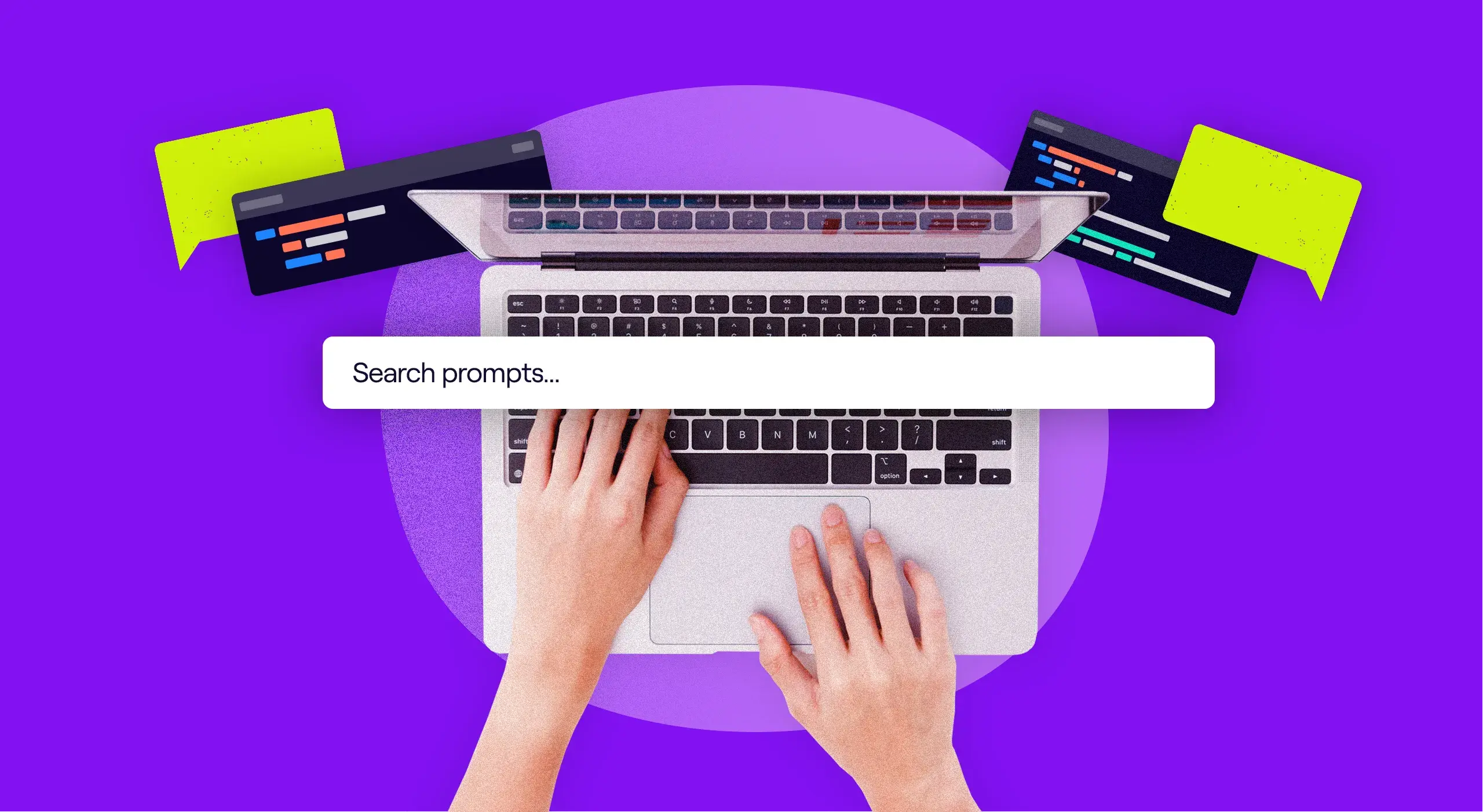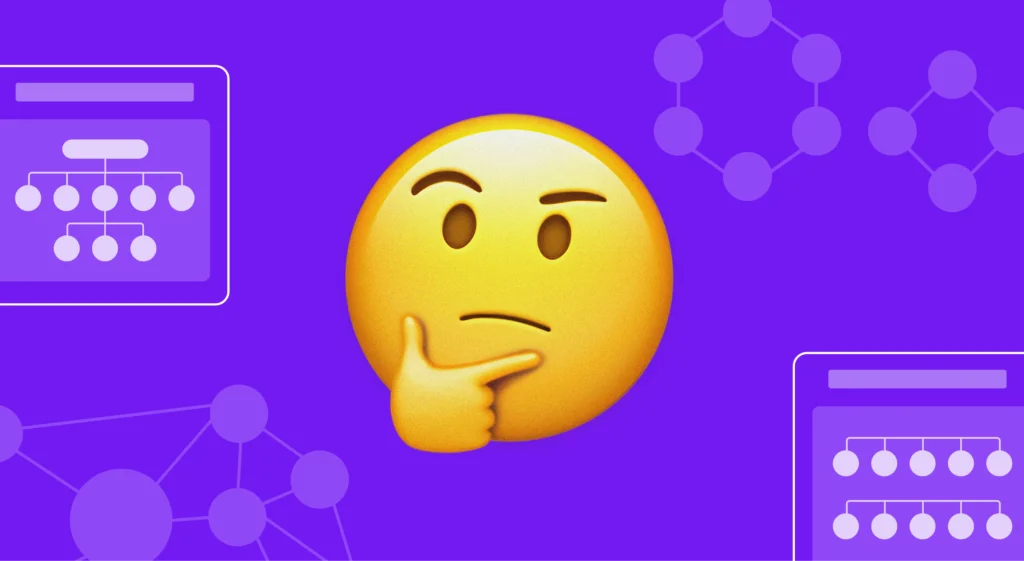Depending on what you read about Generative AI (GenAI), you either believe that it will take our jobs overnight or that it’s the latest fad that won’t have any impact in the years to come. Regardless of your opinion on GenAI, it’s become a topic too big to ignore. Unless we address the topic head-on with our software teams, the lingering anxiety surrounding job security will only fester. While we can’t say this with absolute certainty, the truth about GenAI is probably less fearful than the headlines: the role of the engineer and some of their work will slowly evolve, and AI is not coming for software engineering.
Objectively speaking, there’s likely more long-term good coming down the pipe for software engineering teams, and there’s a genuine opportunity for developers to do more of the type of work they enjoy while dropping some of the necessary evils of the role. In this post, let’s discuss how the software engineering role will realistically change. How will the types of engineering work shift because of Generative AI and what will the structure of the typical engineering team be in the future?
More importantly, let’s discuss how to discuss these changes with your teams, and why it’s important to have an early conversation about AI while we all figure out the specifics together.
The role of the engineer
The role of an engineer will shift, but it’s not happening next week. Here are the three ways we see the role-shifting focus in the coming years:
Increase focus on problem-solving and architecture
The best software engineers are great problem solvers who can build code in the context of the overall architecture. And the TLDR is that’s not changing anytime soon.
GenAI can save a lot of time by helping with repetitive coding tasks, but anyone who’s used it can tell you that it still needs oversight. Even when there aren’t necessarily any errors, the code needs to be adapted to fit what exists today.
There’s a way to automate and offload tedious code writing, so why not use it to get time back to focus on better things?
Develop expertise in prompting and generating
GenAI can become your best friend. It can be over your shoulder suggesting code edits, or generating net new code from scratch. The software engineers that get the most out of GenAI will be incredibly productive, but it requires training and practice to get the full value from AI prompting.
Leaders should absolutely jump on training and developing their talent to become comfortable with GenAI prompting. This is a professional development opportunity for your engineers, as well as an opportunity for your org to reap the productivity benefits. In other words, this is a win-win, future-proofing your organizational productivity and your team’s professional development. Encourage your team members to seek out these development opportunities, and if you can begin to include this as a part of your training packages, even better.
Importance of review-centric work
As stated earlier, AI requires oversight. Despite the major technological leaps in recent years, only roughly 33% of suggested edits by GitHub Copilot end up getting accepted by developers. Not only will AI require oversight for the foreseeable future, but we still need to review each other’s code, participate in pair programming, exchange ideas, and brainstorm solutions.
Collaboration isn’t going anywhere, and the need for excellent reviewers will only rise in demand as GenAI increases total code output.
The type of engineering work
Develops AI-integrated products
We’re seeing firsthand executive leadership peers calling on R&D to formulate an AI strategy and build AI into the product roadmap. If you haven’t been asked to yet, it’s only a matter of time before the team is building AI into the product. Leaning into this early is going to be good for the business, and it’s going to be good for your team’s professional development. Over time more businesses will be seeking engineers with backgrounds in AI projects, and your developers will be better for having jumped at the opportunity to bring AI into your business.
In other words, the more team members that are involved early on in AI projects, the more adept and future-proofed your organization will be.
Collaboration with ML and Data Science
Jellyfish is in a unique position where we were founded with a data science and research team from the start. Data Science was fundamental to our business, with key pillars of our entire product functionality completely dependent on their work. Of all the teams in our business, they are at the center of it, and it’s because we had to build a product with research, AI, and ML at its center.
The engineering team of 2030 is going to need to become much closer to ML and AI technologies. While Jellyfish is an outlier now, this could include partnering with data science peers to build groundbreaking features, but teams shouldn’t delegate “AI strategy” solely to that team. It’s not enough to say you have a data science team working with AI, teams need to integrate AI and ML holistically into your business.
Every engineer will need to become a “micro-product manager”
When anyone can spin up “boilerplate code,” software engineers will need to become micro-product managers. Software engineers will be celebrated and rewarded for innovative and improved solutions to problems. They need to discover ways to solve the problem in a way that isn’t out there in the market today for a GenAI tool to pull from. Original ideas will be the true spark of innovation, and the best engineers will pair this innovative spark with big-picture thinking.
Shape of the team
Greater focus on architecture
For the foreseeable future, GenAI does not do a great job at assessing whether the code it generates fits into previous design decisions, how systems are structured, and how they behave. And even if it did, it’s not an employee that is hired to make those decisions. Software engineers need to take on more architecture decisions within their current roles.
Experience and judgment at a premium
It’s always been important to hire software engineers that are excellent decision-makers, but it will become more important for software engineers to broaden their expertise. GenAI will outpace the ability of any one person to know the specifics of any given language, but software engineers bring context and real-life experience. The wider the collective experience that teams have to pull from, the better prepared they will be to answer for architecture, code structure, and other potential challenges that don’t have a clear “boilerplate” answer.
Prioritize breadth of language skills over depth
There are pros and cons to each programming language, and we all have ones that we’re most comfortable with. While many find comfort in being exceptionally proficient in certain languages, over time hiring trends might show that a breadth of language skills will be valued over depth.
GenAI has a deep knowledge of syntax and logic structures of any language it was trained on while having the potential to learn any new language. What it can’t do as well as humans is apply that “knowledge” to the given context required for the specific situation. GenAI’s learning capacity is like adding 1000 tools to your toolbox. It’s going to be impossible to be an expert in every tool, but if you have a broad sense of what tools ar useful in what situations, your impact potential is greater.
Trend towards Full-Stack
As teams trend toward trend towards breadth over depth, this trend could apply towards team organizational structure. To keep with the earlier analogy, if you have access to more tools, it’s going to be easier to work across all areas of the codebase. There’s less need to be specialized and, if fewer people are specialized, you’ll need to have a solid foundational understanding of all areas of the codebase to be more efficient, impactful, or both!
Be Proactive About Career Conversations
It’s completely understandable to be apprehensive about the impact of GenAI and the software engineer role. The best way forward is to address this topic early and often. In a few years, your organization’s hiring strategy might align with the previously mentioned trends, but there’s plenty of time to current team members to fit your requirements. While, your job won’t be going away anytime soon, hopping on the bandwagon early will put you in a position for future growth while also providing the opportunity to help define how your team and company grow. This is an exciting time to be in software engineering, and those who are proactive about the impact of AI on their career development will be best suited to adapt to the coming changes.







